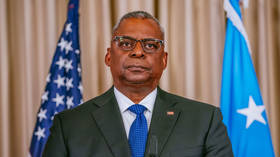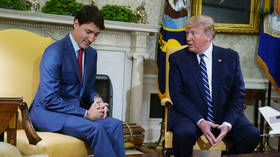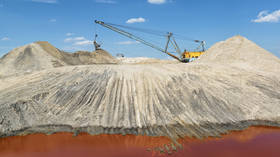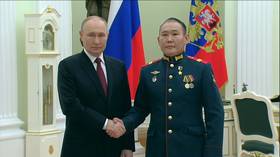US navy details response to possible blockade of Taiwan
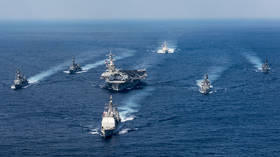
The US and its allies would be able to break a naval blockade of Taiwan if Beijing decides to isolate the self-governed island, Admiral Samuel Paparo, the Commander of the US Pacific Fleet, has assured.
The Chinese navy certainly possesses “the number of vessels, and the capability at sea to execute a blockade” of Taiwan, Paparo told journalists in Hawaii, which hosts the Pacific Fleet headquarters. His comments were reported by Japanese news agency Nikkei on Wednesday.
“The question that follows is ‘Do the allies have the capability to break that blockade?’ And the answer to that is a resounding ‘yes,’” the admiral noted.
Paparo went as far as suggesting that Washington could foil China’s plans to isolate the island on its own, without the help of allies, due to the volume of firepower and “superiority in key domains.”
In August, China staged the largest ever military drills around Taiwan in response to a visit by US House Speaker Nancy Pelosi, effectively cutting the island off from the rest of the world for days. Planes and vessels in the area were warned about the exercises and had to change route.
An unnamed US official told Nikkei that Beijing could “essentially blockade Taiwan’s access, through the repeated imposition of these kinds of closure areas, legally, safely, and in a way that would be extraordinarily difficult, either for Taiwan or the US, to challenge and to counter.”
Such an approach would allow China to isolate the island without actually announcing a blockade. In this case, Washington would be unable to conclude definitively that a blockade is in place, which would prevent it from launching an operation to remove it, Nikkei pointed out.
US President Joe Biden said on several occasions that America would intervene militarily if Beijing decided to use force to gain control of Taiwan.
During an interview with ‘60 Minutes’ on CBS News last month, Biden was asked if “US forces, US men and women would defend Taiwan in the event of a Chinese invasion?” The president responded, by saying “yes.”
Taiwan has been self-governed since 1949, but never officially declared independence from China, with Beijing considering it a part of its territory under the One-China policy.
Despite consistently stating its support for the approach, Washington maintains strong unofficial ties with the island of 23.5 million, selling weapons to Taipei and backing its push for independence. Beijing has long protested those contacts, saying that they were provocative and infringed on China’s sovereignty.
